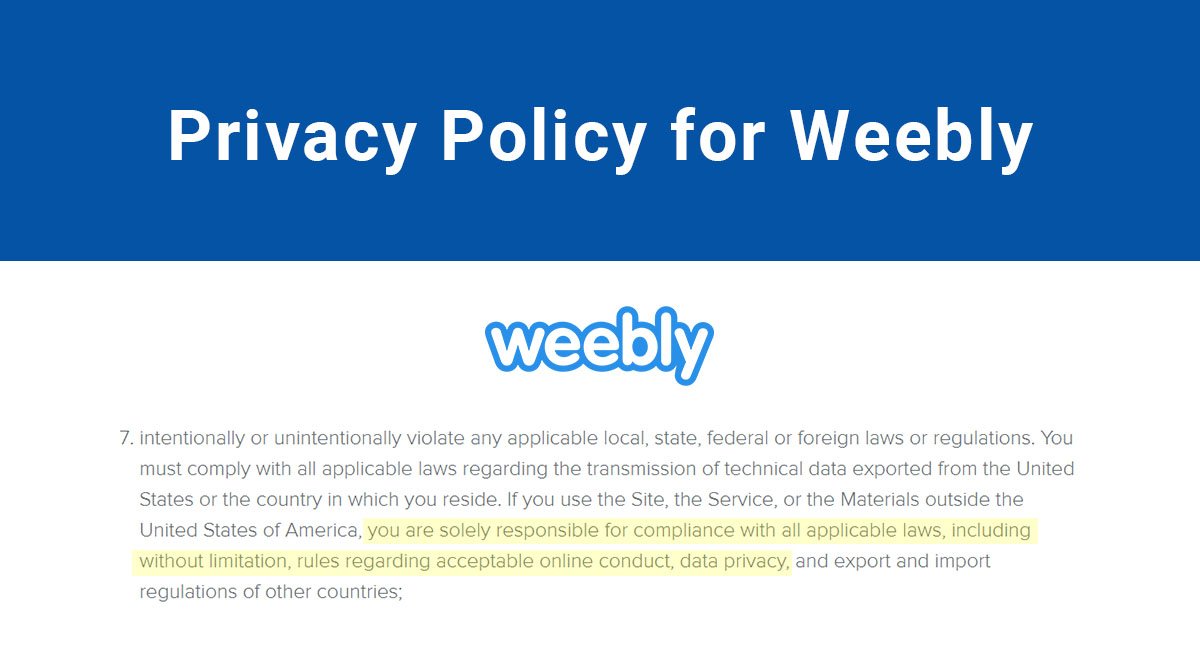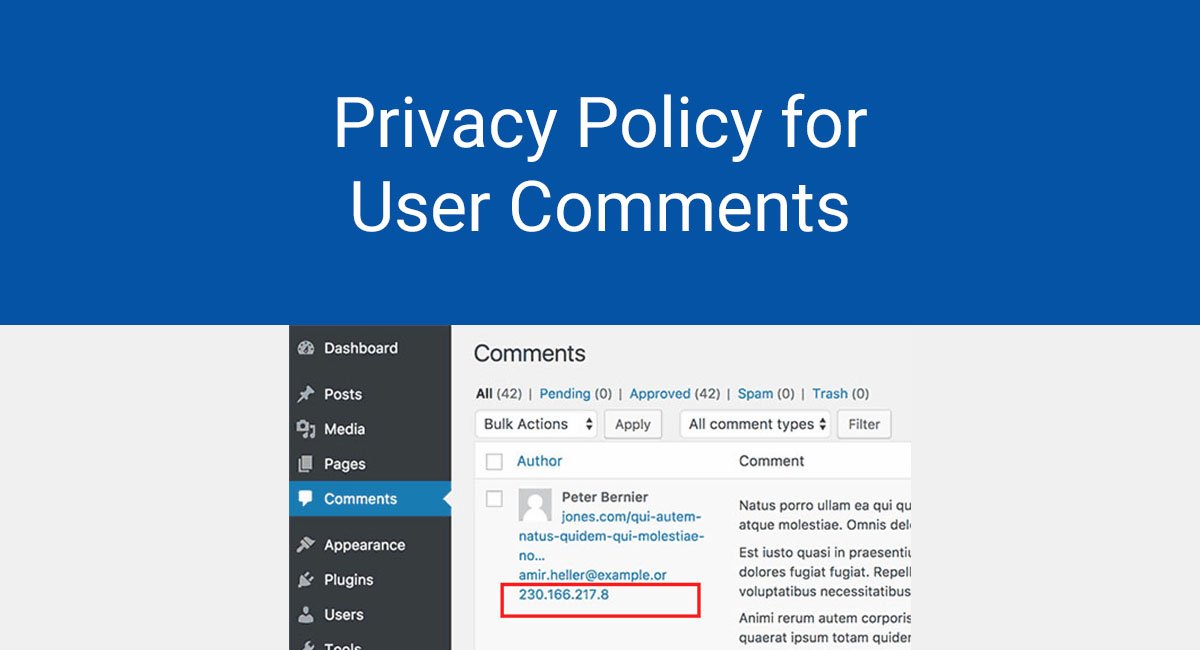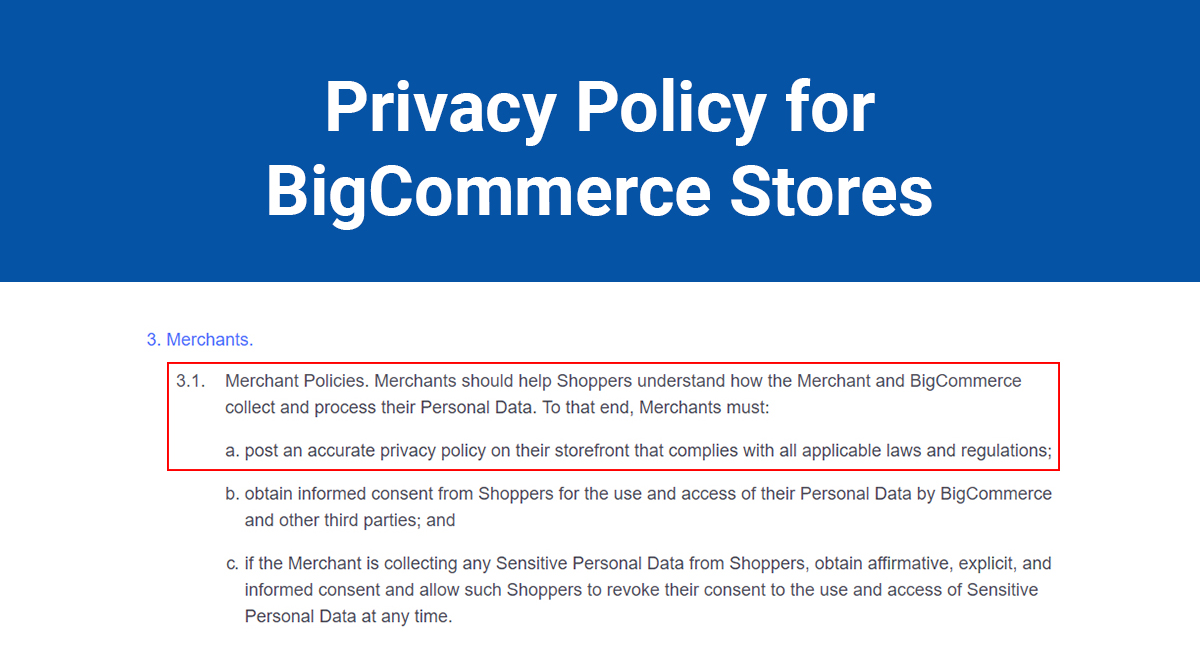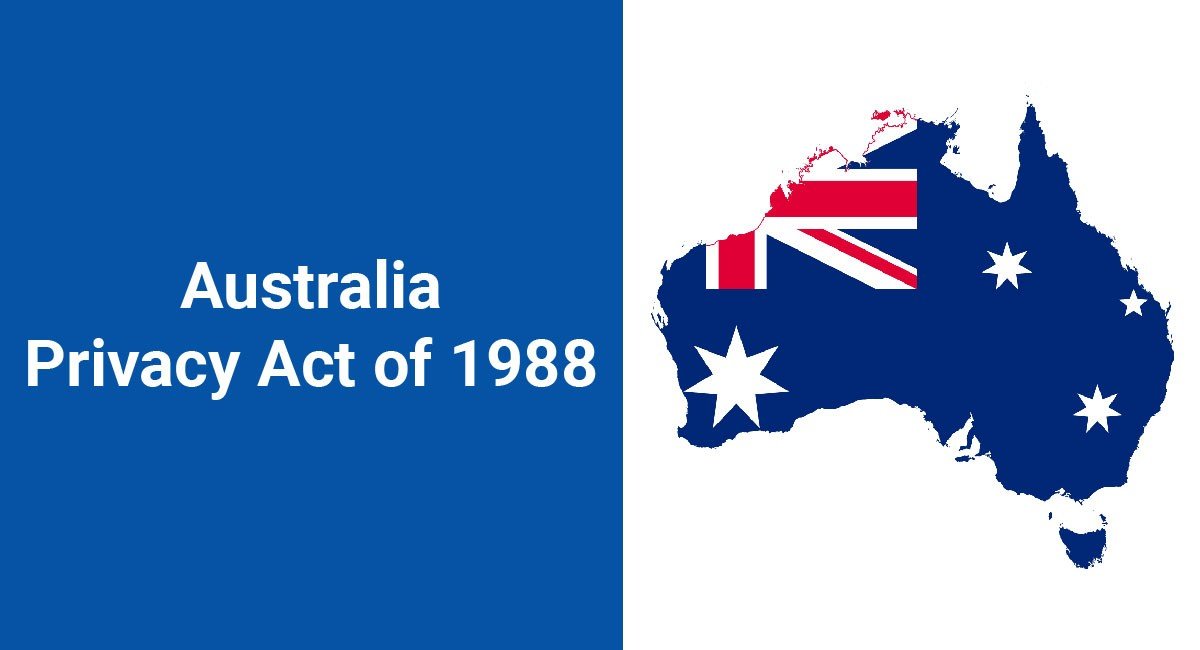While Weebly doesn't explicitly require you to include a Privacy Policy if you use Weebly to build and/or host your website, you may still be required to include a Privacy Policy on your website by law.
Weebly's Terms of Service agreement includes the Section 8 titled "Content and Conduct Rules and Obligations".
In this section, Weebly states that if you use Weebly, "you must comply with all applicable laws regarding the transmission of technical data exported from the United States or the country in which you reside."
Weebly customers are also told in this agreement that if Weebly is used outside of the United States of America, then:
"you are solely responsible for compliance with all applicable laws, including without limitation, rules regarding acceptable online conduct, data privacy, and export and import regulations of other countries."
Here is a screenshot:

Basically, Weebly is requiring you to adhere to any laws and rules that deal with online data privacy and data transmission. These laws that deal with online data privacy and data transmission require a Privacy Policy if personal user data is collected and used.
If your Weebly website collects and uses any personal data from users, you'll need a Privacy Policy according to law. Weebly requires you adhere to these laws if you wish to use the Weebly service.
These laws include a number of international directives and acts that work to protect the privacy of end users of websites and mobile websites all around the world. They can apply to websites and mobile apps that collect personal information from users, whether the website is created or hosted by Weebly or not.
Personal data or personal information for these purposes means any information that can be used to identify a user such as:
- Email addresses
- Birth dates
- First or last names
- Financial information
- Home addresses
- IP addresses
- And other identifying pieces of data
Here are a few of the most common applicable laws and regulations that Weebly's Terms of Service indirectly requires its users to adhere to when it comes to online data privacy and data transmission.
Privacy laws for Weebly websites
US CalOPPA

The United States created the California Online Privacy Protection Act (CalOPPA) to protect the citizens of California, but it indirectly ends up helping protect the privacy rights of people all over the world.
CalOPPA requires that if any personal information is collected and used from a user located in the state of California, that website must have a Privacy Policy. It doesn't matter if your website is created with Weebly or Squarespace.
The Consumer Federation of California explains the Privacy Policy requirement of CalOPPA as follows:
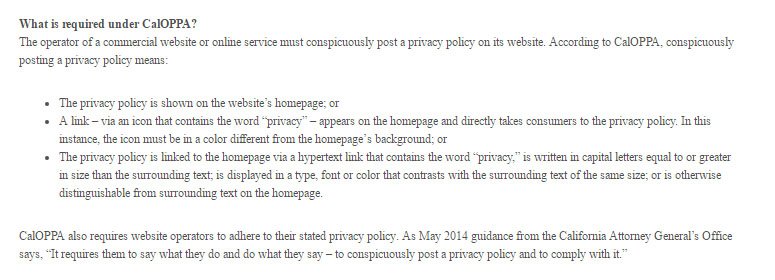
Because it's likely that a person in California may visit your website and submit personal information, if you collect user information at all through your Weebly website, no matter where your business is located, you will need to include a Privacy Policy to ensure you're compliant with CalOPPA.
EU Privacy Directives

In the EU and the UK, there are two different laws that require a Privacy Policy if you collect personal information from users:
- In the EU, it's the Data Protective Directive and the ePrivacy Directive
- In the UK, it's the DPA Act
The first principle of both of these European privacy directives requires that all personal information from users be processed in a fair and lawful way. This has been interpreted as saying that there must be transparency from businesses when it comes to how they process personal information.
To achieve transparency here, businesses should including a thoroughly informative Privacy Policy whenever they collect personal information.
This is a requirement by the EU privacy directives whether your website is hosted by Weebly or not.
Australia's Privacy Act

Australia has thirteen Privacy Principles that regulate how personal information is handled. These principles cover the following topics and issues:
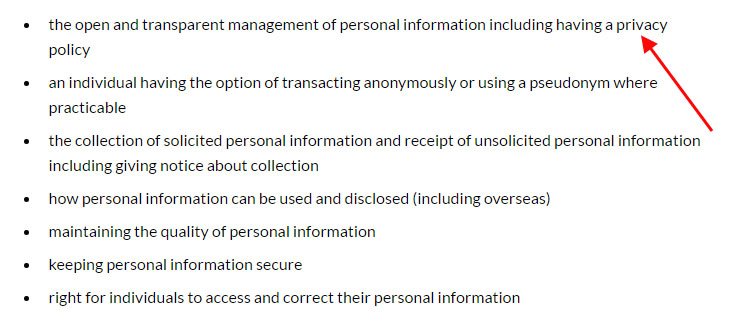
The first of these principles covers "the open and transparent management of personal information including having a privacy policy."
This is a requirement by the Australia's Privacy Act even if your website is hosted by Weebly or not.
Canada PIPEDA

The Personal Information Protection and Electronic Documents Act (PIPEDA) is a federal law in Canada that dictates how businesses in the private sector must handle personal data and information collected from users.
One of the requirements of PIPEDA is that businesses must let users know what personal information is going to be collected, why it's going to be collected. A Privacy Policy is the one of the easiest ways to inform users of your data collection practices.
The Office of the Privacy Commissioner of Canada created an infographic with 10 privacy tips for businesses (seen in part below), and number seven is to "have a privacy policy."
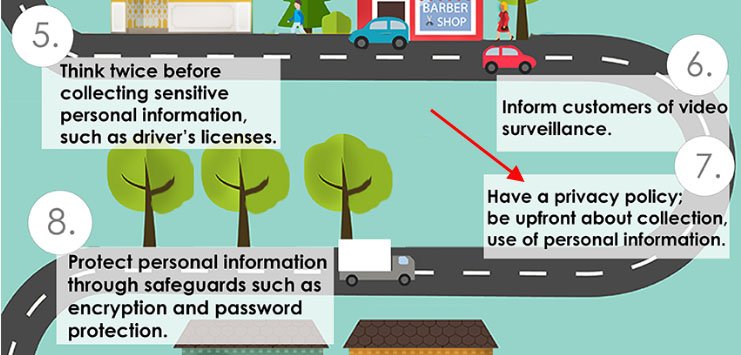
Image credits to Priv.gc.ca
This is a requirement by the Canada's PIPEDA act even if your website is hosted by Weebly or not.
Weebly requirement for email marketing
Email marketing is a very effective and widely used tool for website owners looking to reach their customers and users.
If you engage in email marketing and collect email addresses on your Weebly-hosted website, Weebly requires that you comply with CAN-SPAM.
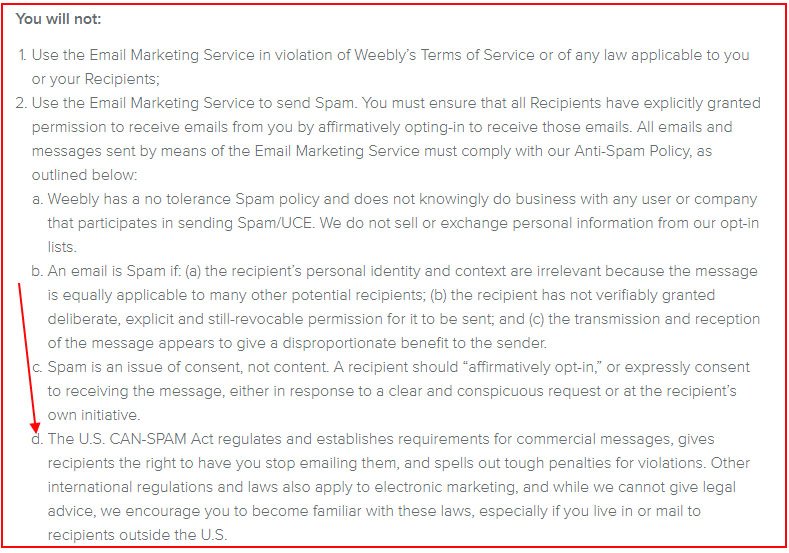
CAN-SPAM has a number of requirements for senders of commercial messages, including that you provide recipients with a method for opting out of receiving your messages, don't use deceptive subject lines, and that you let recipients know that your message is an ad.
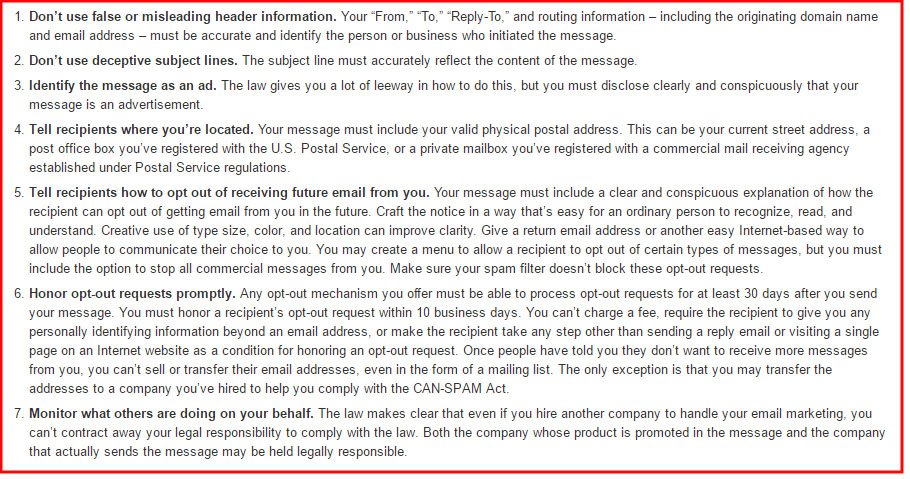
When you engage in email marketing, you should include information about this in your Privacy Policy. Let users know that you collect their email addresses, and that you use those addresses to send out commercial messages.
Here are a few examples of how businesses that engage in email marketing include this information in their Privacy Policies.
Airbnb
Airbnb's Privacy Policy lets users know that it uses personal information - including email addresses - to send "marketing, advertising, and promotional messages":
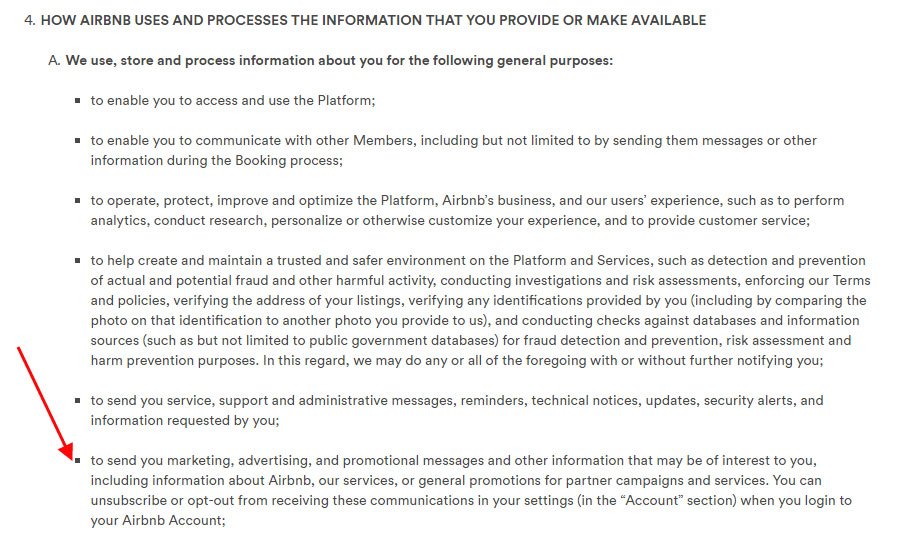
Native Union
Native Union's Privacy Policy lets users know that personal information like an email address may be used to "send promotional emails about new products, special offers or other information which we think you may find interesting.":
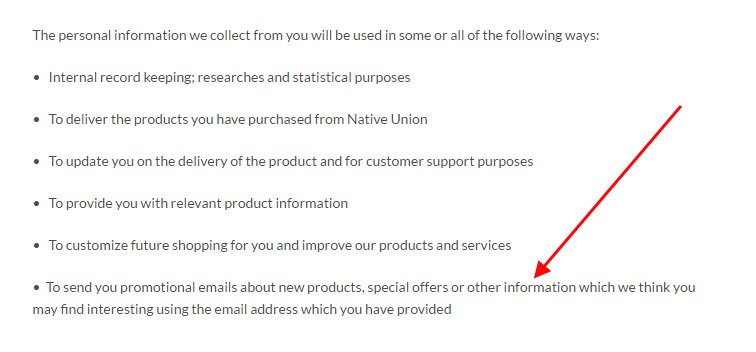
How to add a Privacy Policy on Weebly
Use the Privacy Policy Generator from TermsFeed to create a Privacy Policy for your Weebly website.
It's easy to add a Privacy Policy page to your Weebly website. Just follow these easy steps:
- In your Weebly dashboard, click on Pages in the top menu, and then click the + icon.

- Click on Standard Page to add a new page.
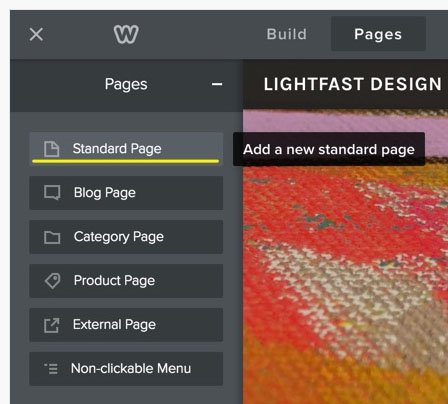
- Under Page Name, type "Privacy Policy" and hit Enter.
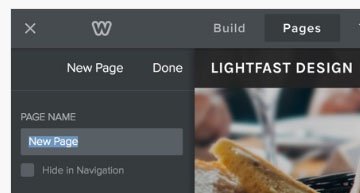
- On the right, edit the newly created page to include the contents of your Privacy Policy.
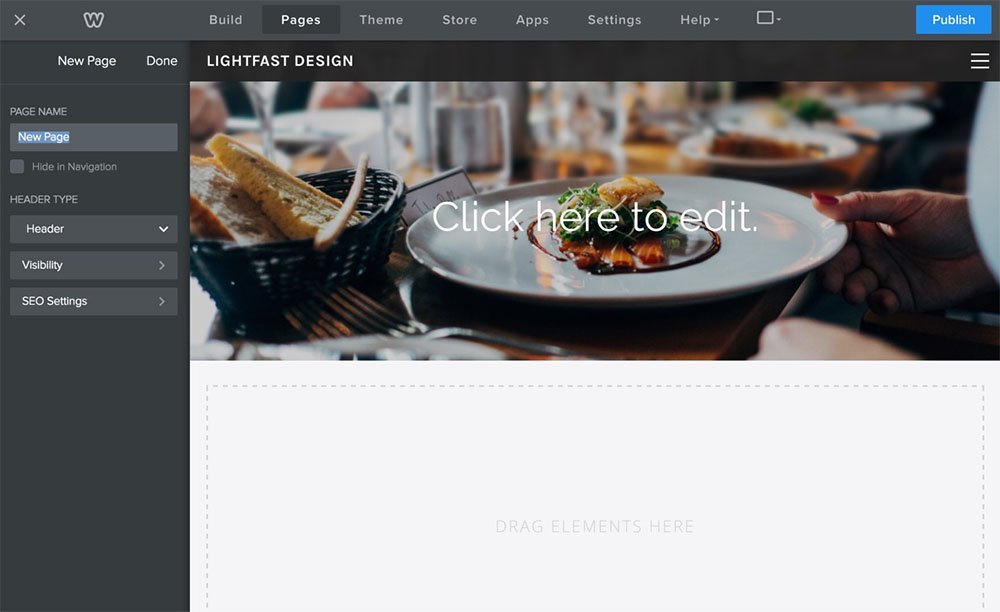
Examples of Privacy Policies for Weebly
Use the Privacy Policy Generator from TermsFeed to create a Privacy Policy for your Weebly website.
DiWine Designs
DiWine Designs is a Weebly-powered website. You can see Weebly's presence both in the top url, as well as at the bottom of the website in its own footer space. You can also easily spot its Privacy Policy page at the bottom near the footer:
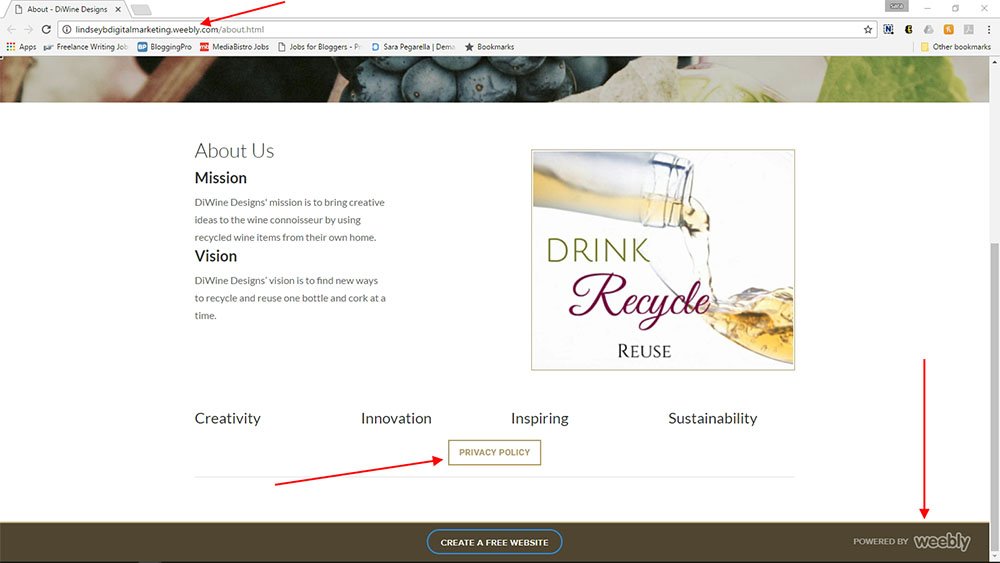
The Privacy Policy agreement includes information about how DiWine Designs collects information from users, and what safeguards go into protecting user information.
This what a Privacy Policy is: it's the policy where you can let your users know details such as these so they know what to expect with your data collection practices.
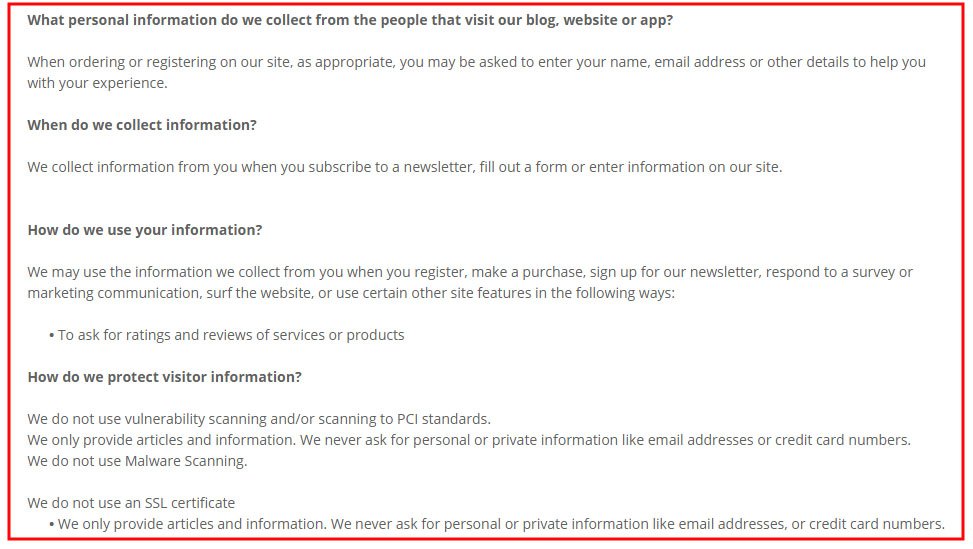
Joya
Joya's Privacy Policy is linked along with other important legal information in its footer section:

Joya's Privacy Policy uses bold headings to break down each different section it includes. This format makes it easier for users to navigate to relevant sections within the document.
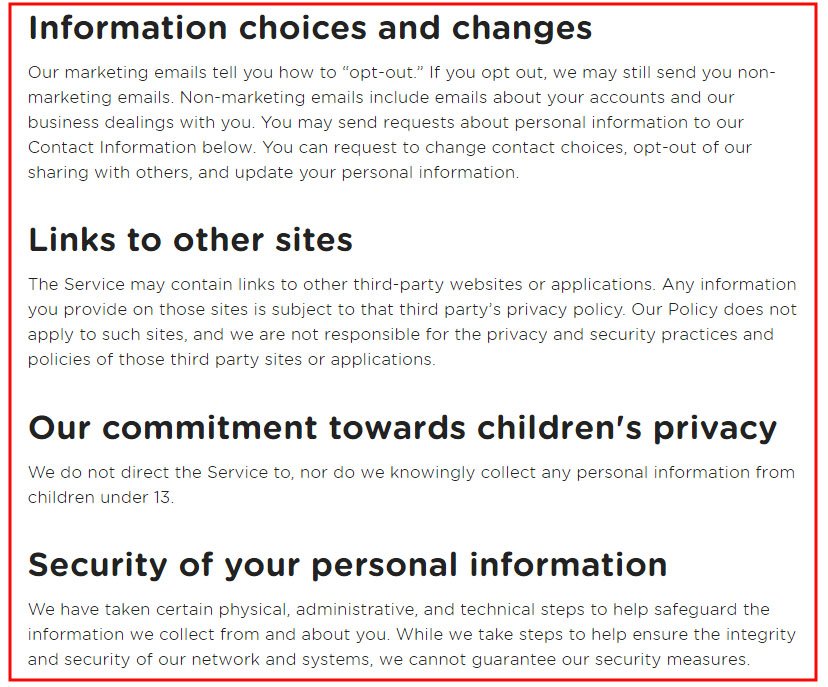
Education Perfect
Education Perfect has a very robust footer area that's full of useful information, including linking to its Privacy Policy.
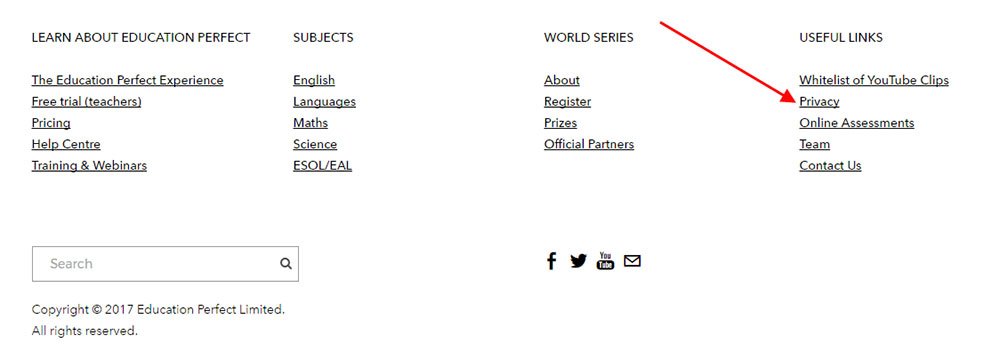
Education Perfect's Privacy Policy is full of specific information that helps parents feel comfortable knowing how their personal data and children's personal data will be collected, used and secured.
For example, the Privacy Policy informs users that
"when a student first logs in to Education Perfect, we strongly encourage them to change the generic password that they have been provided with. When they do this they are required to enter an email address, so that we can send them a new password should they forget this one."
Here is a screenshot of this clause:
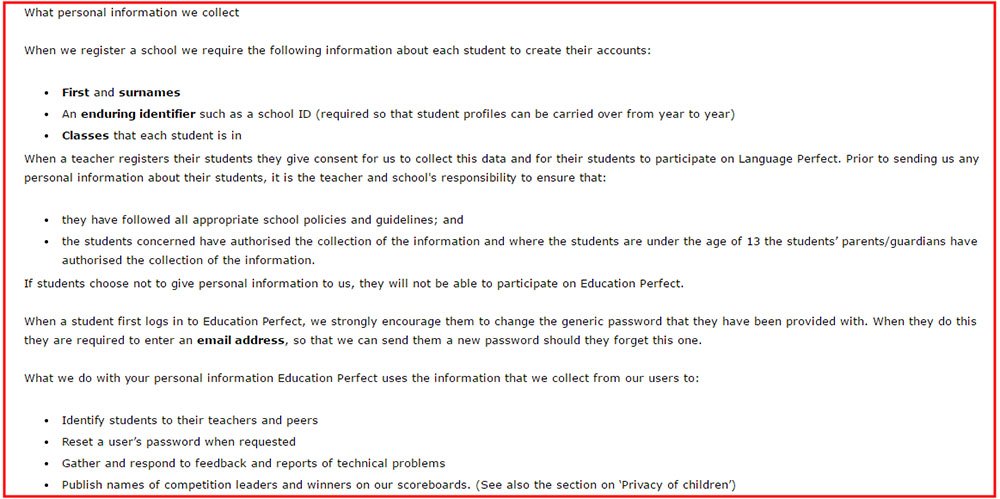
Belgrave Heights School
Belgrave Heights doesn't put its Privacy Policy in its website footer. Instead, it's located in the "About Us" menu as part of the "School Policy" tab:
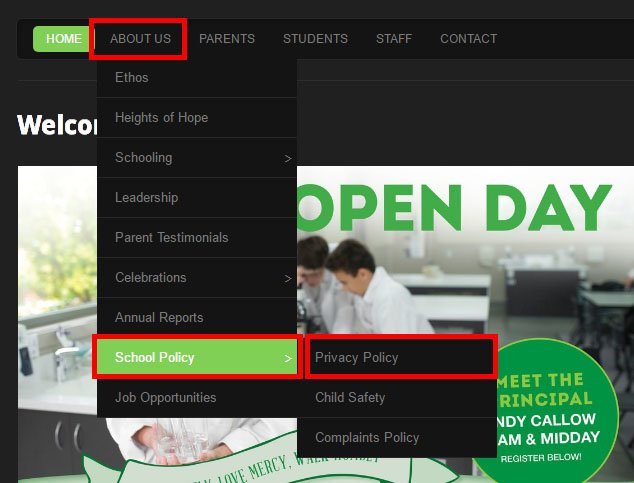
Once you click on Privacy Policy within this menu, a page opens up that has a link to the Privacy Policy file, as well as a summary paragraph of what the Privacy Policy is about:
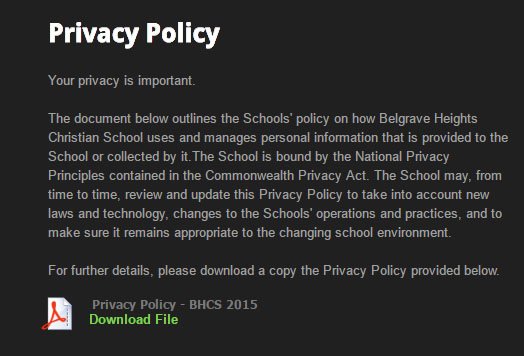
The Privacy Policy of Belgrave Heights website is a PDF document:
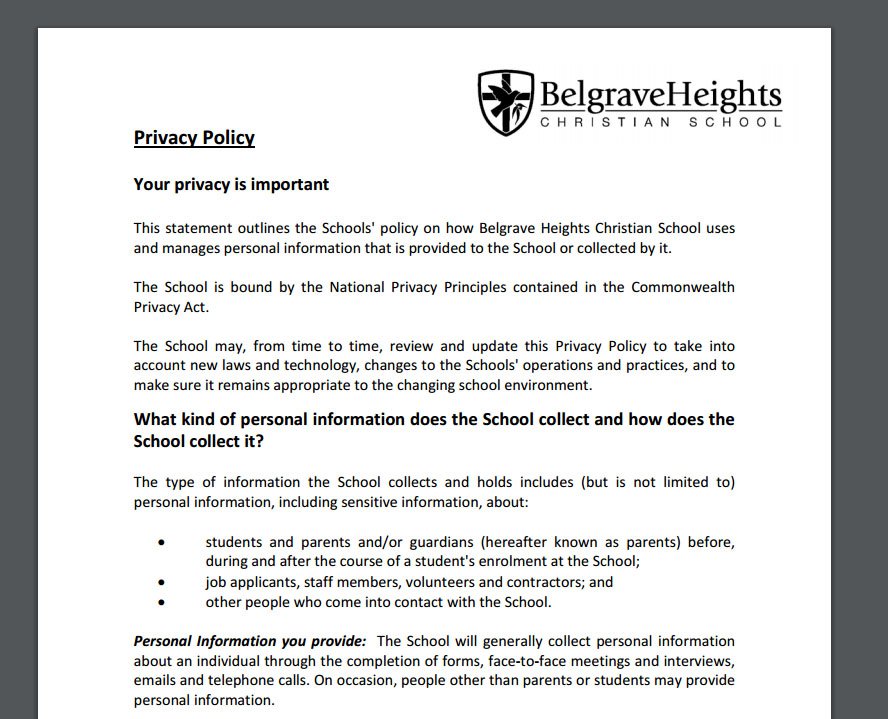
Total Impact
Total Impact keeps a link to its Privacy Policy in its very simple and discreet footer:

The Privacy Policy itself is also very simple and is comprised of only 6 paragraphs. However, all of the required and important information is included, such as:
- What personal information is collected
- How it is collected
- And what it's used for
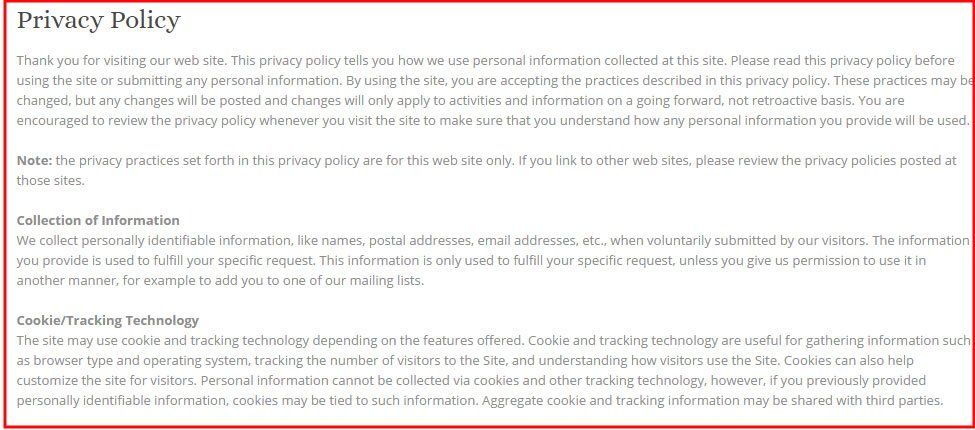
Your Weebly website can be designed and structured however you want it to be, so long as you include a Privacy Policy if you're legally required to.
You can put the Privacy Policy in the footer, in your main navigation menu, or anywhere else easily accessible to your users.

Comprehensive compliance starts with a Privacy Policy.
Comply with the law with our agreements, policies, and consent banners. Everything is included.
